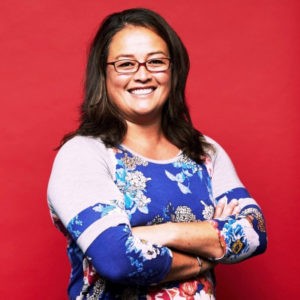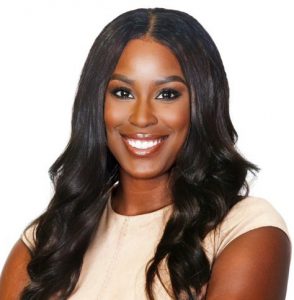Making your workplace accessible and friendly to potential and current employees with disabilities is not just the right thing to do—it will make your business stronger. A study conducted by Accenture, the American Association of People with Disabilities, and Disability: In found that organizations prioritizing accessibility had 28 percent higher revenue, and people with disabilities represent the third-largest market segment in the United States. By bringing in employees with different abilities and backgrounds, your business will make better products, understand your customers more, and will foster an open, strong community.
So how can you make your workplace better? In recognition of National Disability Employment Awareness Month, we wanted to highlight companies that are committed to increasing access through their hiring practices, retention strategies, and overall support for their employees and customers with disabilities. Take a lesson from these companies to improve your own accessibility practices.
Accenture
A global leader and Fortune 500 company, Accenture is taking the lead on accessibility practices, too. Their biggest shift was creating an IT accessibility program aimed at making 100% of the company’s technologies compliant with global accessibility standards. While this is excellent for those with disabilities, Accenture sees it as helpful for everyone. “[Accessibility] assists with language barriers, cultural understanding and any person facing a permanent or temporary disability due to physical mobility, neurodiversity, disease or aging. Accenture believes accessibility functionality will become the rule, not the exception.” Accenture also sponsors research, like the study above, to show other companies the value of accessibility.
Bloomberg
Empathy and innovation leads Bloomberg’s hiring practices, and this has proven successful in reaching and recruiting disabled candidates. Around the world Bloomberg has partnered with organizations like EmployAbility, Lime Connect, and Talento Incluir to increase accessibility in their hiring process. Inclusion does not stop at hiring. Multiple ERGs at Bloomberg exist to help employees with disabilities feel welcomed and raise awareness both in the company and in the greater community. Bloomberg recently partnered with Beyond Our Sight, for instance, as a way for employees to experience what a visually impaired individual may face. This experience was a way for Bloomberg to increase empathy and understanding in the company and encourage employees to ensure they’re appropriately supporting their colleagues.
Boston Scientific
Boston Scientific’s company goal is to “change the lives of communities worldwide.” The company clearly understands that this doesn’t happen without a diverse workforce, including people with both apparent and non-apparent disabilities. Their LEAD Employee Resource Group embraces disability inclusion by emphasizing Leadership, Education, Allies, and Disabilities. It works specifically to raise awareness for problems faced by people with disabilities in the workplace. Boston Scientific also works with the US Business Leadership Network and it’s Going for Gold Project which has helped them better understand how to increase disability inclusion in the workplace.
Boeing
Boeing has made disability inclusion an enormous priority, reflected in their receiving a perfect score on the Disability Equality Index 5 years in a row. They are proud supporters of Disability:In, which empowers companies to achieve disability inclusion and equality. This also includes the Disability:In Conference in Chicago, where Boeing interviews candidates for career opportunities. In addition, Boeing is a member of The Valuable 500, a global campaign that strives to place disability as the top of business agendas.
BNY Mellon
BNY Mellon received a perfect score on the 2020 DEI, in part because of the efforts of HEART, the Employee Resource Group for Diverse Abilities. HEART elevates awareness of disabilities and promotes a safe, respectful and welcoming environment where all employees feel included, valued and able to contribute their diverse abilities. Providing practical support, this group has spearheaded closed-captioning capability for deaf and hard-of-hearing colleagues, and sponsors relevant events, such as an annual Disability Mentoring Day. Hani Kablawi, Head of International and Executive Sponsor of HEART, said of BNY’s efforts, “People with disabilities represent over one billion people around the globe. Disability touches nearly everyone and is a natural part of the human experience. We recognize that our work is not done – we are actively looking for ways to provide additional resources for our colleagues impacted by disability. Each and every human deserves to come to work in an environment that encourages inclusion and belonging at every level.”
Booz Allen Hamilton
This consulting firm has earned a perfect score on the Disability Workplace Index Best Place to Work for Disability Inclusion 6 years in a row. Booz Allen Hamilton’s Global Disabilities Business Resource Group is always actively providing resources for development and volunteering with the local disabled community. Booz Allen is also dedicated to enabling the next generation of disabled professionals – the company annually hosts a Disability Mentoring Day program that pairs employees directly with students who have disabilities. On this day, not only do employees partake in fun activities and team challenges, but they give the participants learning seasons to help them understand the accommodations process in both academic and corporate settings. Booz Allen is a proud ally to not only their own employees with disabilities, but the professional community at large.
Caterpillar
ADEPT, Caterpillar’s ERG that supports workers with disabilities, was created to form a more inclusive workplace. The group’s goal is to integrate D&I by attracting individuals with disabilities, developing partnerships for professional growth, and engaging in company and community outreach to increase awareness. One such example of ADEPT working towards their mission is through the NFAR and ADEPT internship program, which is an internship program for young adults with autism. Students in the program are tasked with improving the quality of Caterpillar’s products during their time working with the company. In 2018, a group of students in the program were awarded a Diversity and Inclusion Excellence award for their achievements on improving coding habits and work processes at the company.
Cigna
Cigna promotes ability diversity in the workplace with Disability Awareness Days several times throughout the year. These events educate employees on ongoing initiatives and offerings for workers with disabilities, and also provide activities so that the whole workforce can better understand and work with one another. Additionally, Cigna has numerous employee groups that offer a space for workers with similar backgrounds to come together and create solutions for both for the company and for customers with similar disabilities. Members of these groups, like People with Different Abilities, also volunteer with students with disabilities to give back to the community and create a pipeline of diverse talent that can come work for Cigna in the future.
Cisco
This organization has been a leader in accessibility for more than a decade. In addition to clearly defined accessibility standards, Cisco has launched numerous groups and initiatives to promote diverse abilities in the workplace. The company’s Connected Disability Awareness Network brings together all employees impacted by disabilities in any way, and helps lead changes and initiatives from Cisco. One task they worked on, Project Lifesaver, provided technology to workers with disabilities that would allow them to work remotely in case that served their disability better than an office environment—this technology was created with engineers with disabilities, and has been adopted by other companies as well. Finally, Cisco offers accessibility training to all managers so that every team at the company is inclusive.
Delta
Delta created an Advisory Board on Disability to shape company policies and practices surrounding accessibility and taps into their customer base. The members of this board all have disabilities and are frequent fliers with the airline, providing Delta with a unique, customer-centric view on accessibility. One major takeaway that’s come from this group is a new sign-language tag for airline employees, so that customers can immediately tell that signing is a communication option. The employee group ABLE works with the advisory board to implement ideas, and to make sure company ideas align with passenger input. This has led to stronger hiring and retention, more self-identification from employees, and, for all of us flying with Delta, clear and understandable service and emotional support animal guidelines.
Fidelity
Fidelity’s ‘Enable’ Disability ERG, which started in 2016 with 6 members, now is composed of over 80 employees working to create a more inclusive work space for people with disabilities. From increasing accessibility to washrooms, desk, and computer equipment, to allowing for flexible work hours/settings and bringing in occupational therapists to help employees with disabilities, Fidelity has tackled it all. In addition to this, they also hire from the Holland Bloorview Ready to Work program, which helps young people with disabilities find jobs. Given all of this, it’s not surprising that Fidelity has earned a score of 100 on the Disability Equality Index.
Gartner
The work done at Gartner requires employees to know the efficiency, effectiveness, and impact of corporate decisions. One such decision Gartner cannot overlook, and advises clients not to overlook, is accessibility for disabled employees. In their own study, Gartner found that most companies don’t have the best standard of practice to support and recruit candidates with disabilities causing them to miss out on a critical talent pool. At their firm, Gartner has partnered with Disability:IN and Equal Opportunity Publications to reach and recruit students with disabilities, started including alt text for images and graphics, and has encouraged associates to partner with local charities and non-profits through the Gartner Charity Match Program. These are just a few steps taken that greatly impact accessibility at Gartner.
The tech behemoth knows most of the world uses its products, and that means those products need to work for everyone. Enter: the Central Accessibility Team. This group ensures that accessibility is incorporated into everything Google does by conducting user research, training all teams on accessibility best practices, and regularly testing for common issues online. As a result, Google has become a tech leader for accessibility by making YouTube completely captioned and developing tools and apps for people with disabilities. Their reasoning is pretty simple: “accessibility problems of today can lead to the technology breakthroughs of tomorrow.”
IBM
IBM hired their first employee with disabilities in 1914 – a full 76 years before Congress passed the Americans with Disabilities Act. From the start, IBM was interested in making technology available and accessible to everyone, and that could only be achieved through having diverse voices in the room. Blind IBM fellow Chieko Asakawa, for instance, opened the web for non-visual access by creating a program which converts text to speech. IBM is a prime example of why representation matters and how teams with diverse backgrounds are more effective at problem solving. IBM recognizes that the unemployment rate for people with disabilities is 50% than the national average and has been combating this problem through hiring funds, ERGs, and the entry point internship that only hires students with disabilities.
Intel
Intel has bold goals for raising the awareness and accessibility for people with disabilities in the tech industry. By 2030, they are committed to increasing the amount of workers who identify with having a disability by 10%. The Intel Disability and Accessibility Network ERG, composed of over 1000 members, ensures that there are steps in place to reduce barriers and promote the innovation of truly inclusive products and services – whether that manifests itself in empowerment of their workers, flexible work accommodations, or an inclusive and accepting workplace. By releasing their full goals for accessibility by 2030, they also keep themselves accountable for real change, which is why they also earned a score of 100 on the Disability Equality Index.
L’Oréal USA
For two years in a row, L’Oréal has received a perfect score on the Disability Equality Index for being an exceptional workplace for people with disabilities. Why? The top of the list is their DiversABILITY Think Tank, which has led the charge on a slew of initiatives aimed at making L’Oréal more accessible. In 2018, the think tank’s “Breaking the Silence” campaign doubled the number of employees who disclosed disabilities and reshaped hiring practices to be more inclusive. They credit the success of the group to involving employees from all locations and levels of the company to ensure ideas are coming from, and being spread, across the board.
Merck
Merck is a pharmaceutical company with a longstanding commitment to professionals with disabilities. In 2015, they launched the Global Disability & Strategy Council— which has spearheaded a plethora of initiatives that have improved the lives of workers with disabilities internally and externally. An example: the Council created facility-accessibility standards such as implementing more accessibility in cafeterias, reception areas, parkings lots, and more to help everyone do their best work. Merck is also very proud of their capABILITY Network, a business resource group dedicated to helping with networking, education, and expanding awareness. This network partners with awesome organizations like Best Buddies – a global organization that helps people with disabilities network and get new professional opportunities. It is no wonder Merck earned a 100 on the Disability Workplace Index Best Place to Work for Disability Inclusion this year!
Microsoft
Microsoft is an organization that not only values bridging opportunity gaps for employees with disabilities, but also providing opportunities for students with disabilities all across the country. The recipient of 2018’s Disability-Smart Award for the tech category, Microsoft offers the Microsoft Disability Scholarship to promising high school seniors with disabilities who plan on attending university and target careers in the tech industry. Aside from launching this scholarship, the Microsoft Disability ERG works to increase disability awareness and visibility within the company by working with product teams in order to ensure that they are building and designing accessible and inclusive products.
MetLife
MetLife, another best place to work for people with disabilities, has tackled accessibility from all angles. Their offices all offer accommodations for those with disabilities, and an employee resource groups brings in speakers that educate all employees on disability-related issues. On the hiring front, MetLife works with external organizations to find and hire talent with different abilities, and recruiters are trained to maximize opportunities for people of all backgrounds—this ensures a diverse candidate pool that is accessible to all. Finally, MetLife puts its money where its mouth is literally by financially supporting local accessibility initiatives.
Procter & Gamble
This global products company means business when it comes to accessibility and has become a leader in this area in the past decade. Its People with Disabilities affinity group has reshaped company practices, including the hiring process, to be more accessible and friendly to people with disabilities. Additionally, P&G implemented reverse mentoring so that managers without disabilities could learn from reports on how to make the workplace better. All of this has led to a sharper focus on making products more accessible and has diversified hiring practices.
PwC
There’s a lot to be learned from PwC’s “Ability Reveals Itself” campaign. The campaign helped launch a workshop to teach company leaders how to recruit and retain talent with disabilities, and has a unique focus on giving caregivers the support and guidance they need to be successful. But PwC isn’t just making its business stronger and more accessible—the company is sharing its knowledge with other companies in an effort to make everywhere more accessible. Research sponsored by PwC can help any company hire and retain employees with disabilities, and the company even holds community-outreach events for students with disabilities.
State Street
State Street recognizes that hiring people with disabilities is not only the right thing to do, but the smart thing to do. The company reasons that a workforce comfortable with discussing disabilities is more likely to gain a deeper understanding of their clients needs. An example of this in action is senior associate at State Street Scott Mahoney-Wright working with the DAA to develop a way for employees and customers to indicate their preferred means of communication. This alleviated the stress that can come from joining calls, and let members in State Street communicate more effectively with everyone on their team. Changes like this may not have been made had State Street not had a member with disabilities on their team. A diverse team leads to a better understanding of potential customers and, ultimately, better products for customers of State Street.
Tufts Health Plan
This health insurance company proudly goes beyond the base of having ADA- compliant buildings. Tufts Health Plan is dedicated to consistently increasing awareness and sensitivity to people with disabilities – both for their employees and for their members. Their Parallel-Disability Advocates Business Resource Group takes the lead with educating the workforce at large by hosting awesome events like 8-week long free American Sign Language classes and Lunch & Learns focused on raising cultural awareness around disabilities. Tufts has also signed the CEOs Against Stigma Pledge, which requires cultural competency training for all workers. With full support from leadership, Tufts Health Plan has built a truly inclusive workplace for its professionals with disabilities.
Ultimate Software
In 2019, Ultimate Software was named a top-scoring company on the Disability Equality Index – the most comprehensive annual benchmarking tool for business disability inclusion in the U.S. – due to Ultimate’s initiatives and programs. One initiative, the “U Belong” program, hosts events and workshops aimed at raising awareness and offering education about various mental and physical disabilities. In addition to U Belong, Ultimate offers employees training on accessibility as it relates to their specific roles. Ultimate also provides educational and mentorship resources, such as unconscious bias training, and recently celebrated National Disability Employment Awareness Month companywide to encourage greater strides in the larger workforce when it comes to accessibility.
Every workplace tackles accessibility a little differently, but these ten are doing so in standout ways—and winning awards for their strides in this area. Learn from them and see how you can make your business work for everyone, too.
















